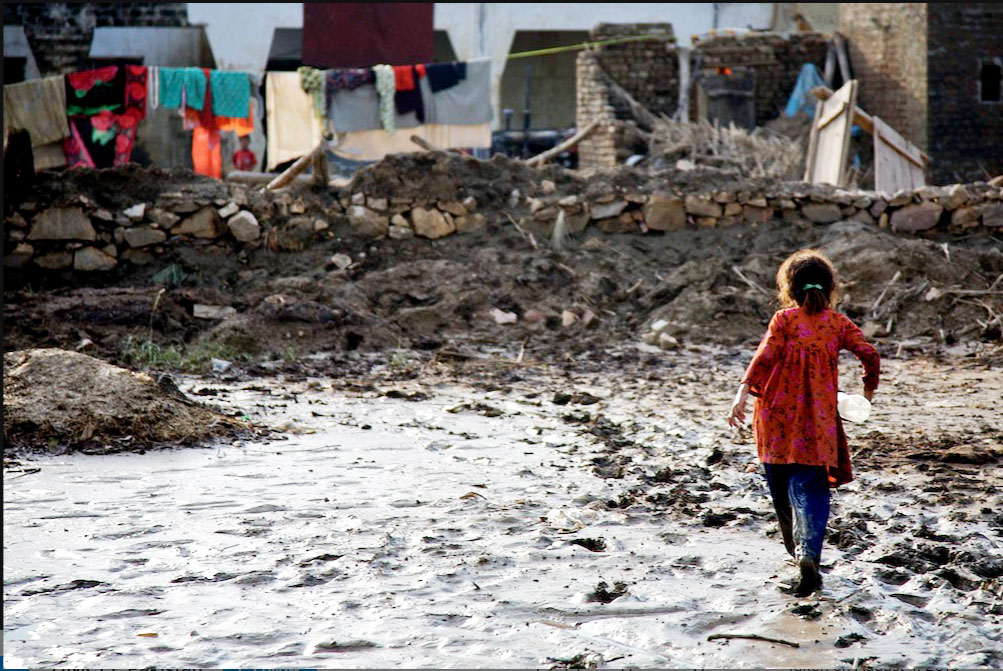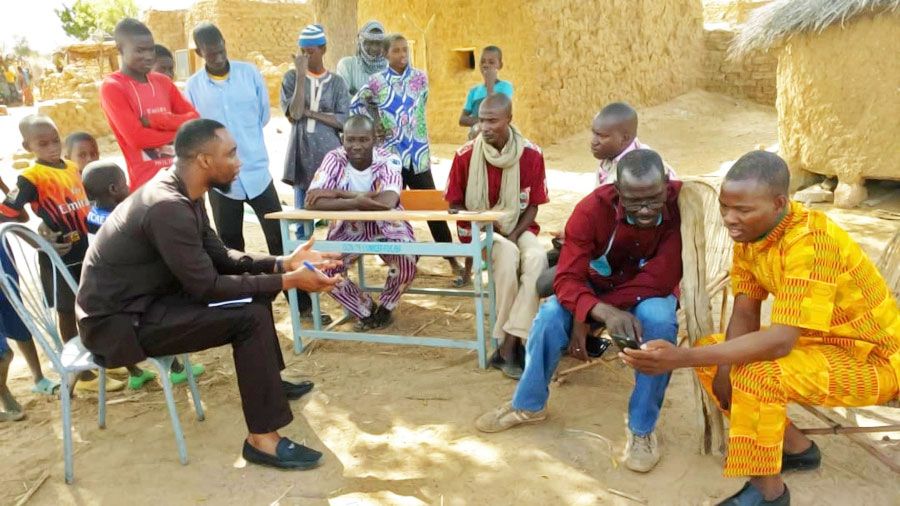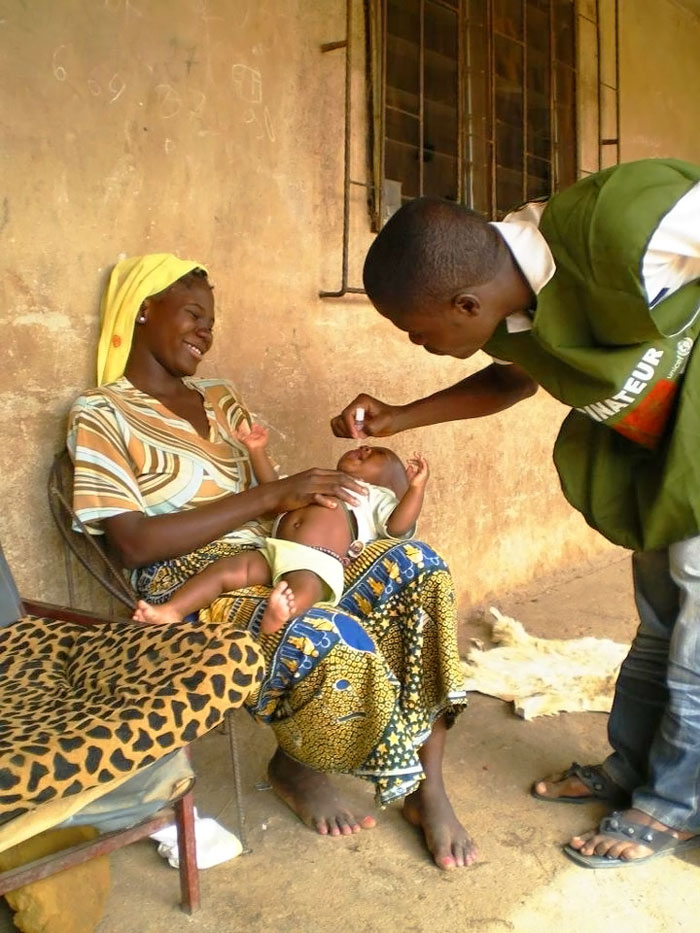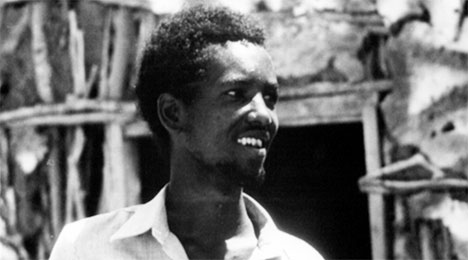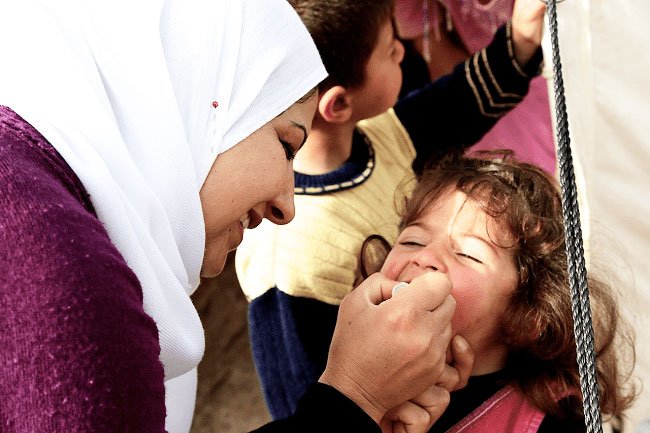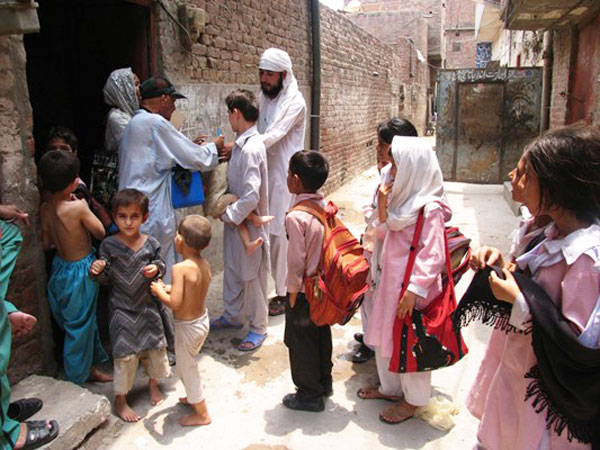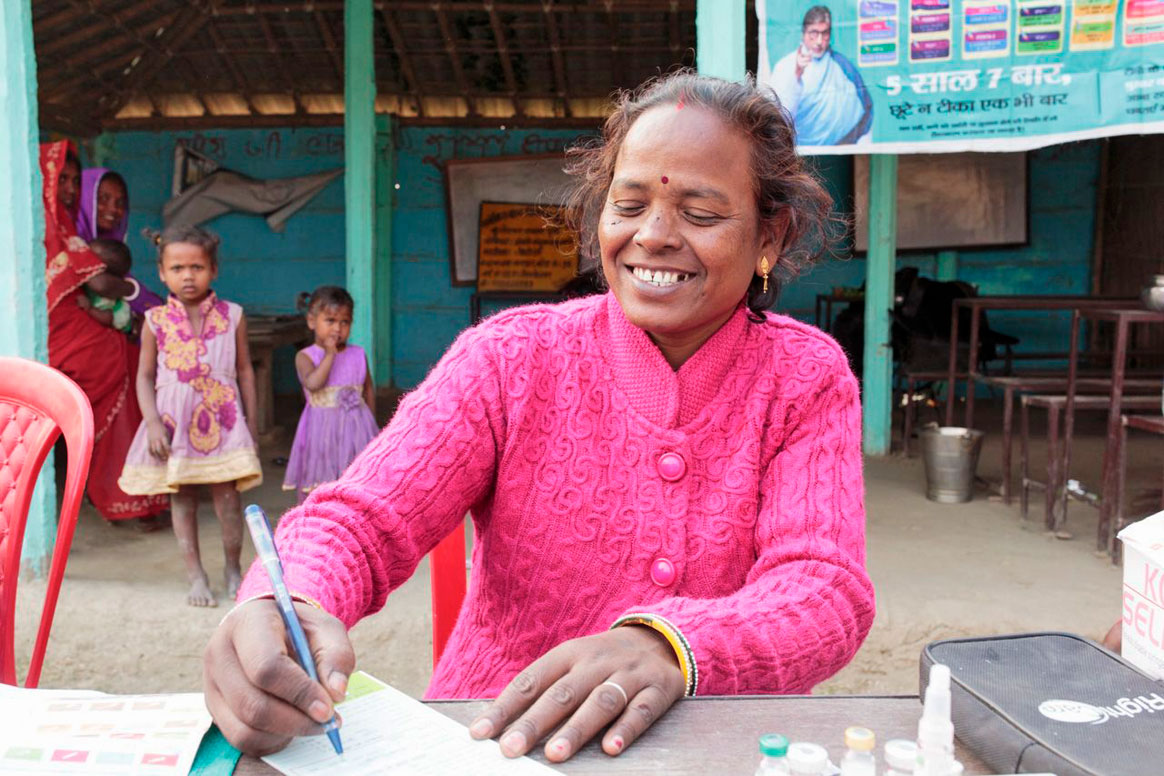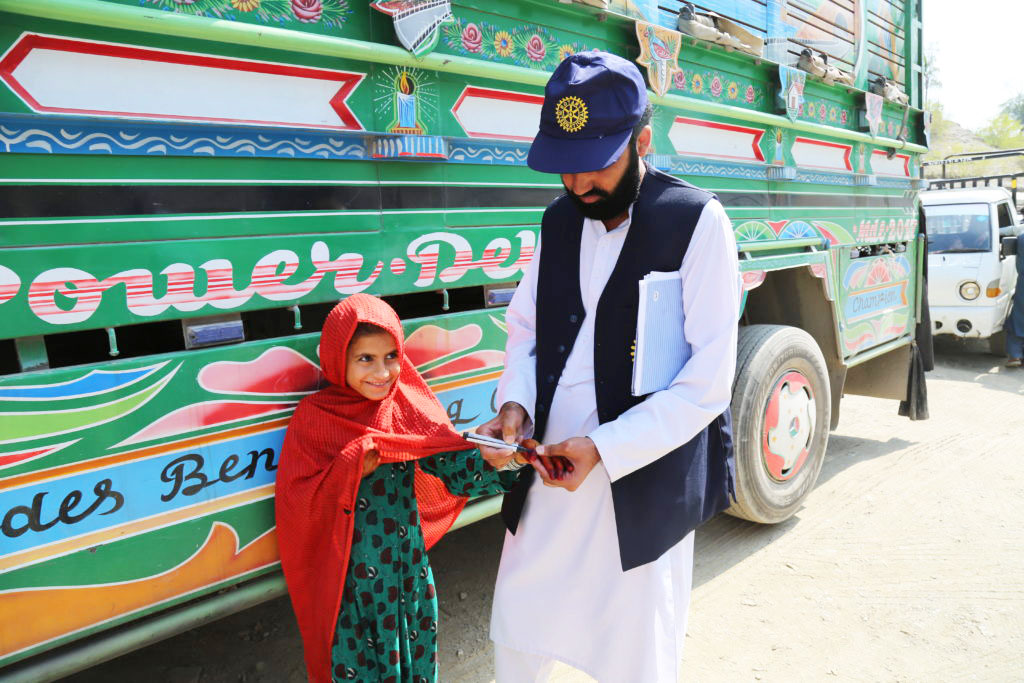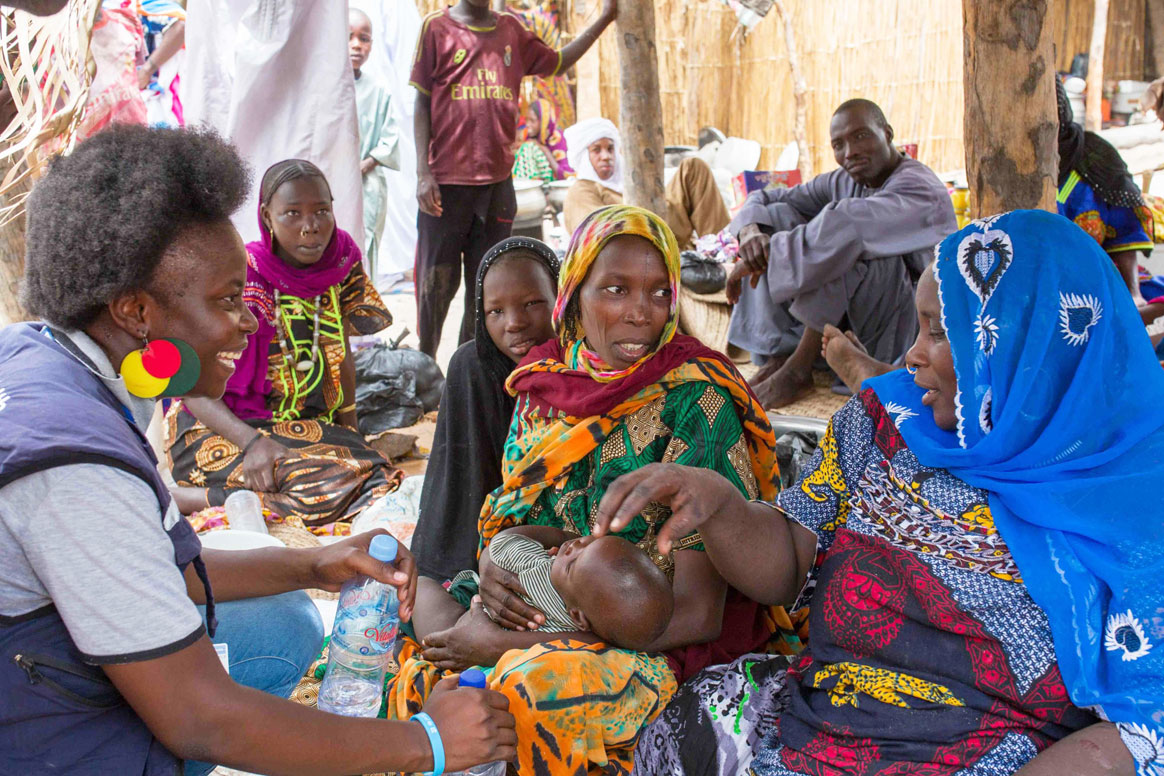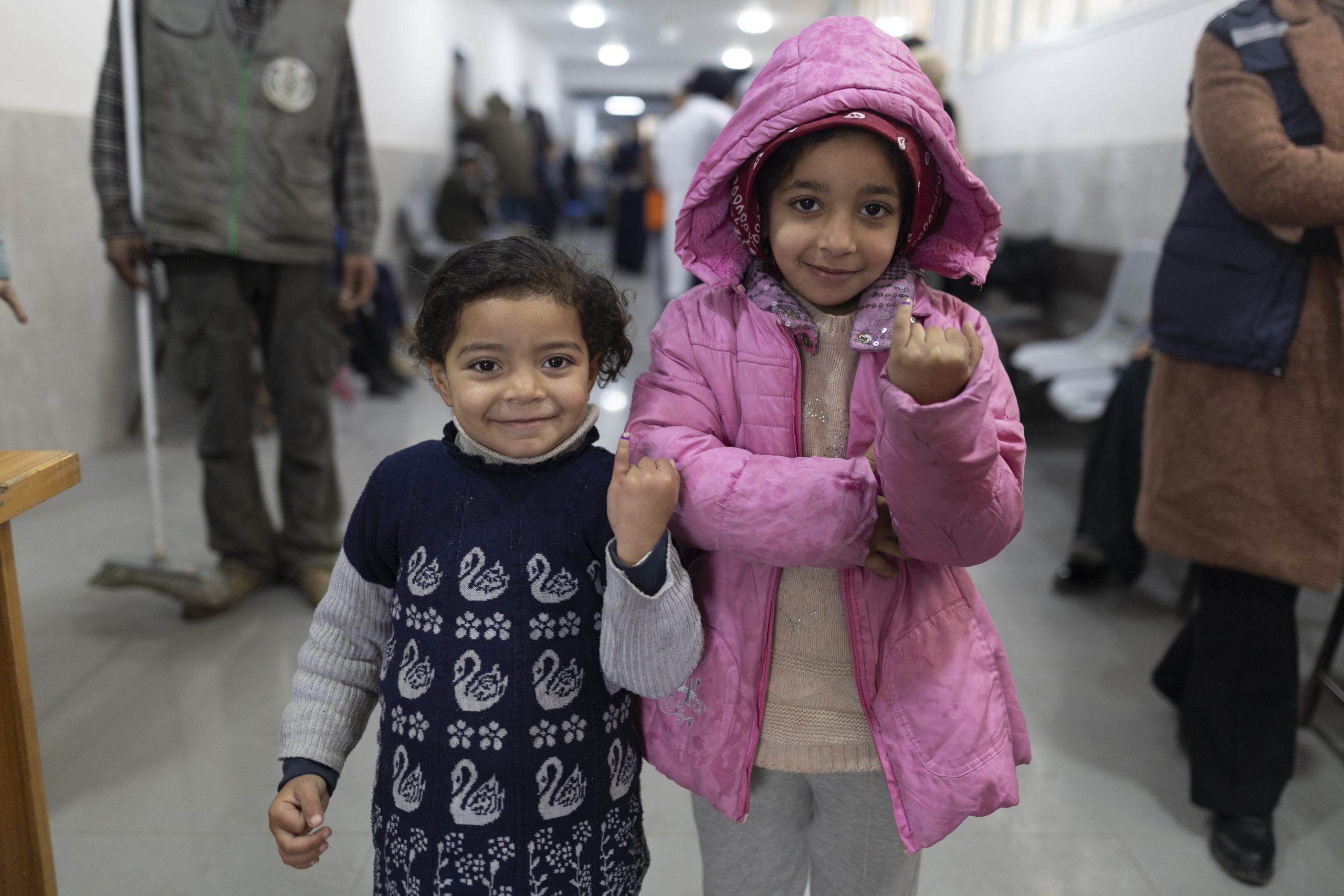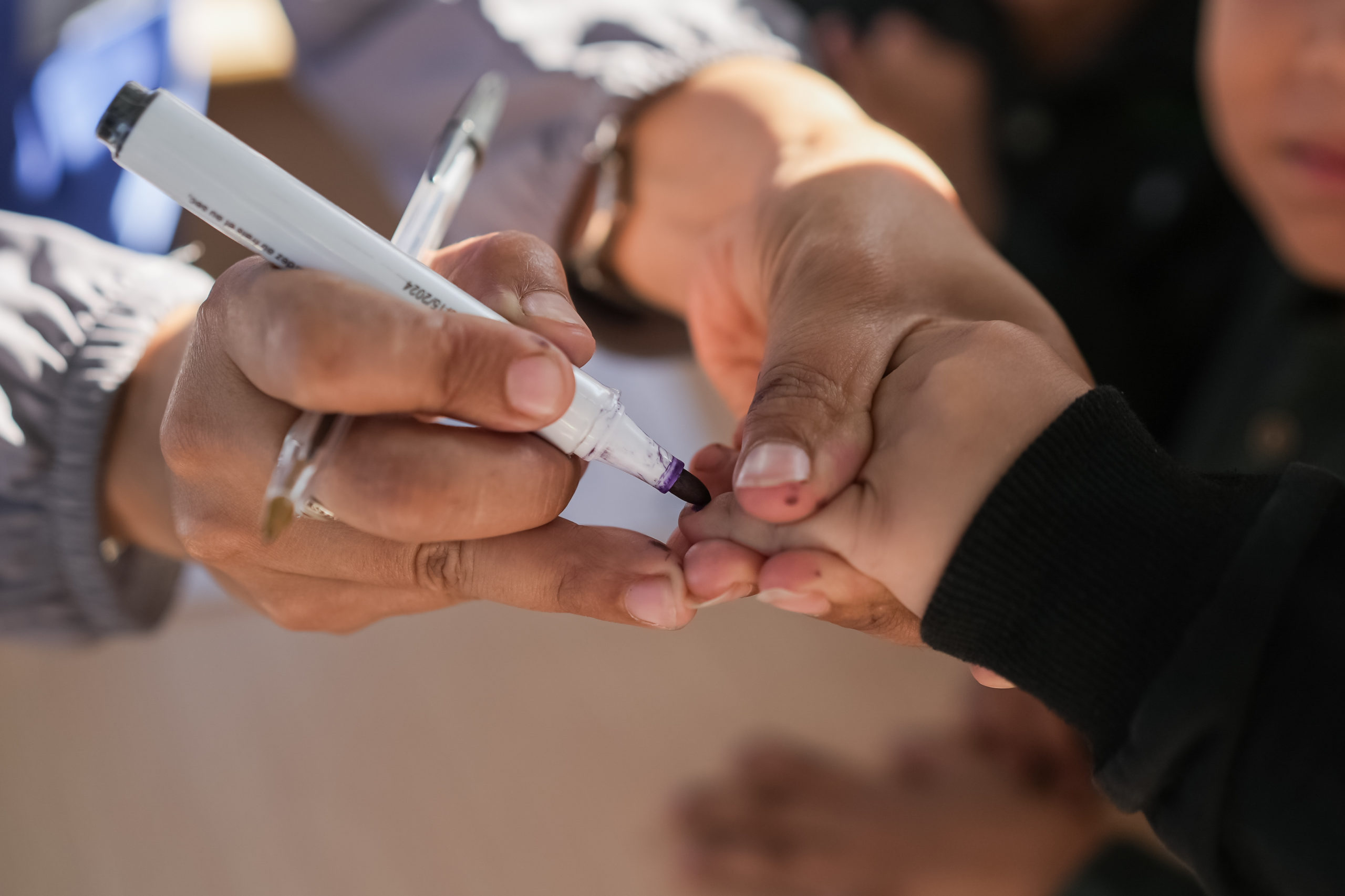Following flood damage “beyond imagination” in Pakistan, all polio-funded technical staff – polio epidemiologists and surveillance officers – were relocated to the worst-affected areas of the country to assist in the recovery and run vaccination campaigns for displaced populations. While controlling outbreaks of disease and conducting immunizations were a necessary focus, team leader Dr. Abid noted that “the priority is still for food and shelter more than anything else”. Over months of relief and rebuilding, the polio team rallied around to work with humanitarian colleagues on the ground.
In November 2011, five vaccination teams in Karu ward, AMAC Local Government Area in Nigeria took part in an innovative pilot study. Equipped with Geographic Information Systems (GIS) devices, their movements were tracked and mapped. Analysis of real-time data on which homes they had visited with vaccines allowed for the immediate identification of possible missed children. Since that first trial, GIS software has been rolled out globally to thousands of vaccinators and disease surveillance officers, transforming data insights in some of the world’s most remote locations.
2012 saw a United Nations-backed effort aiming to vaccinate 111 million children against polio in just four days across west and central Africa. Blaise was one of tens of thousands of polio volunteers taking part across twenty nations. Reporting live from the campaign for UNICEF, he described the reaction from the community, "Today I was able to immunize 384 children. My team encountered no problems. When some children were sleeping, we wanted to come back later but their mothers didn’t want us to leave. ‘Let us wake them up; there is no way we could miss this opportunity to get them vaccinated’, the mothers told us.”
Ali Maalin passed away in 2013 after a truly exceptional life spent eradicating first smallpox, and then working to eradicate polio as a vaccinator in Somalia. Never vaccinated against smallpox himself, he was determined that his experiences would serve as a powerful reminder of why immunization is so important. “When I meet parents who refuse to give their children the polio vaccine, I tell them my story,” said Ali in 2006. “I tell them how important these [polio] vaccines are.”
Feria, a trained social worker, fled violence in Syria to find shelter at an Iraqi refugee camp alongside her two young sons. At the time, in response to a polio outbreak in Syria, WHO and UNICEF, along with the Regional Government, were launching an accelerated series of polio vaccination campaigns to protect every child. Describing her new role as a polio vaccinator, Feria explained, “Polio campaigns are very important for children under the age of five. The oral vaccine is the only way to make sure they won’t be infected and to avoid polio spreading into the camps. After what these children have gone through they should not be sacrificed. One day, they will go back to Syria. One day, we’ll all go back to Syria.”
Sajid Ali, a student in his early twenties, was one of thousands of volunteers who committed to fight polio after attending the Jirga – a Pashtun tribal assembly of elders – in Lahore in 2015. At the same time as pursuing his religious studies in Lahore, Ali volunteered his time going door-to-door to reduce family and community hesitancy to vaccination. Nearly 80% of the polio-affected children in Pakistan at the time came from Pashtu speaking communities, rendering the work of trusted religious scholars from the community crucial. The situation is little changed today, and the work of religious leaders is more important than ever to build trust.
2016 marked five years of polio-free India. This enormous achievement was possible thanks to the efforts of individuals like Martha who personally overcame exceptional hurdles to reach children with vaccine. “Sometimes I’d have to walk by foot or travel by boat and reach these areas, and sometimes I’d have to wade through water to reach my destination. It was quite challenging to face the elements,” she remembers. Innovative thinking led to huge progress however, with Martha’s colleague Dr. Sunil Bahl remembering, “Within a few months we had accelerated from vaccinating children in hundreds of field huts, to reaching 250,000 of them."
The poliovirus knows no borders, making children on both sides of the border between Afghanistan and Pakistan vulnerable to contracting the debilitating disease. In 2017, Abdullah Khalid led a team responsible for vaccination at the Torkham crossing. He had been working for the polio programme for 14 years. “I wanted to join the eradication programme when I heard that polio is a contagious disease that affects children. I wanted to serve children and our community. I learned about polio on the TV and radio and the health workers who came to our home to share information about the virus,” he said. “I am proud when we can reach every child and when I see my team vaccinating children, making sure that no child is missed. This makes me very happy.”
Dr Aluma spent 2018 working in one of the most challenging areas of the world in which to vaccinate. On Lake Chad, 45% of children live on difficult-to-access, remote islands, where geographical barriers, violence, insecurity, and poverty mean people usually do not receive health or other government services. Canoeing through reeds for hours at a time, Dr Adele reached villages never before accessed with vaccines. In February 2018 in Bol District where Dr. Aluma worked, 83 settlements were reached and 15,600 children under ten years of age were vaccinated. In June, the campaign reached more than 53,200 children in almost 500 settlements.
Rahane Lawal is a polio worker in Nigeria, and winner of the 2019 Unsung Hero Award at the Reaching the Last Mile Forum in Abu Dhabi. She has shown exceptional bravery and dedication towards keeping her community safe from polio, despite being kidnapped and witnessing the murder of a family member. Her abductors knew she worked for the polio programme, and assumed she earnt a lot of money. Despite her horrific experience, she remains fully committed to ending polio in Nigeria.
